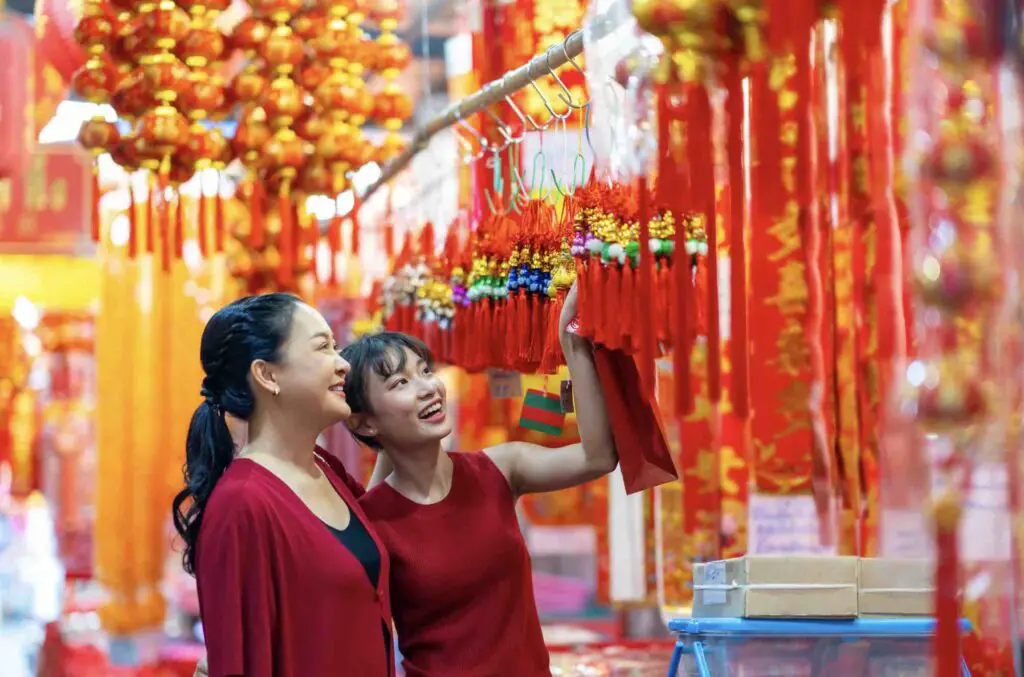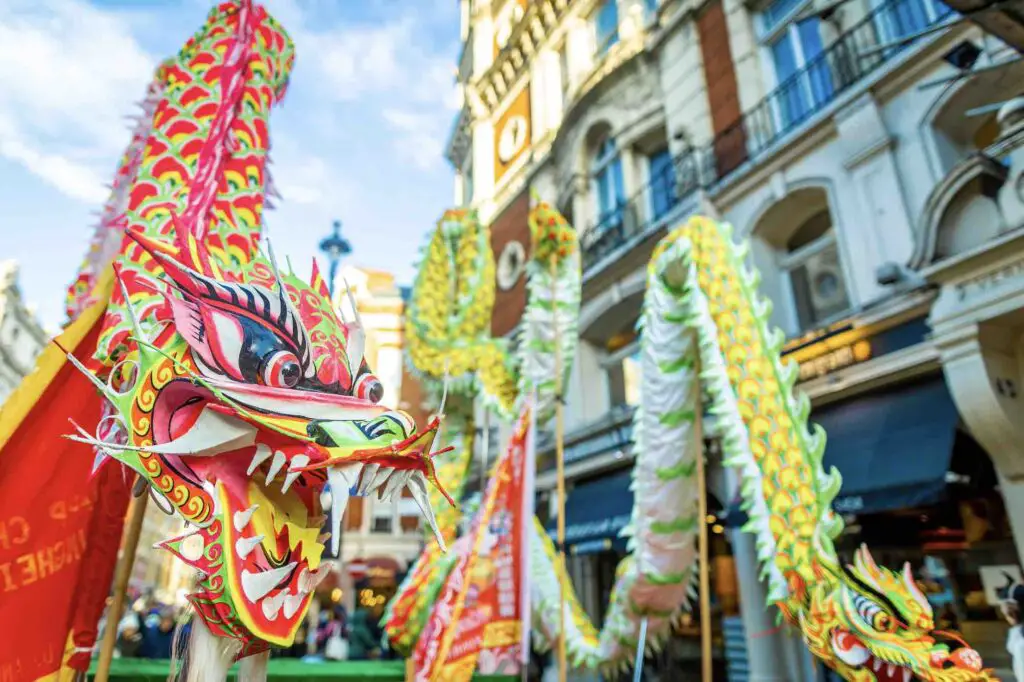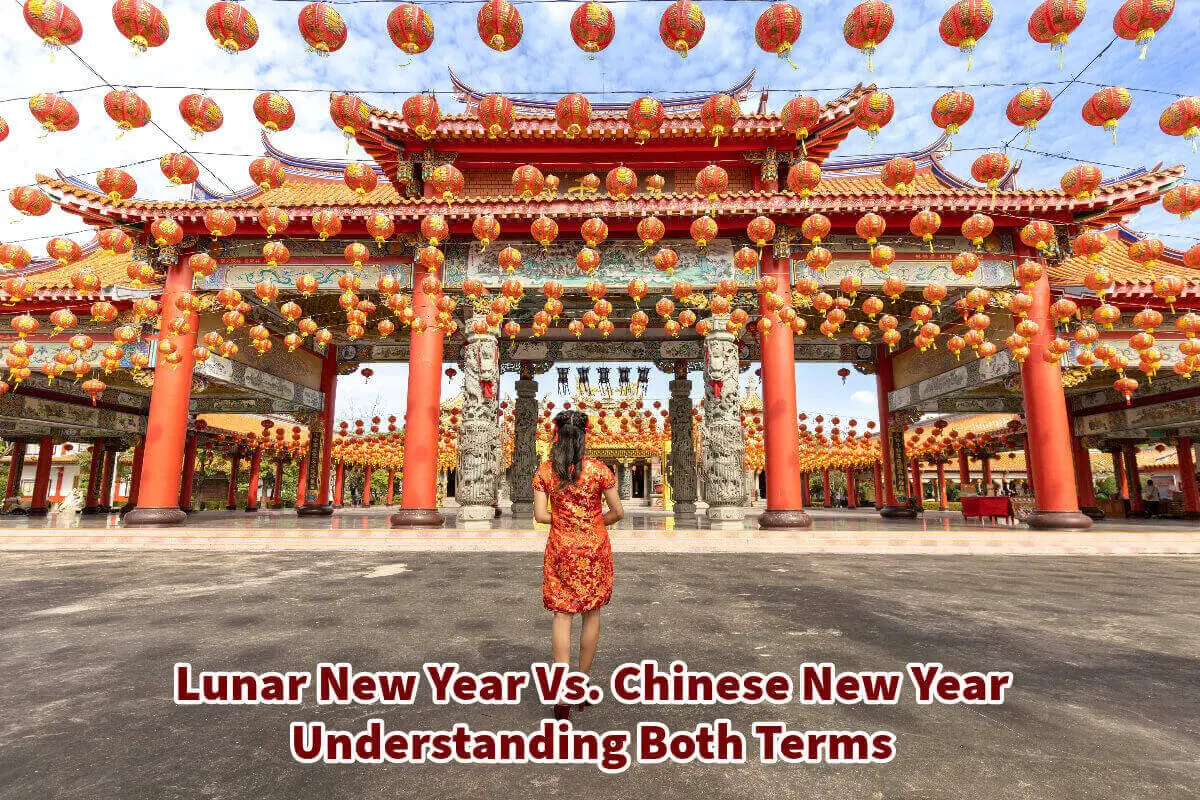If you’re in China, have Chinese friends, or visit during the holiday season, you might hear “Chinese New Year” and “Lunar New Year” used interchangeably. For newcomers, this can be puzzling.
Essentially, both terms refer to the same holiday but are named differently. They celebrate the start of a new year based on the lunar calendar. It is also an important holiday celebrated in China and around Asia. During this holiday, you will find that people will be off for some time to celebrate the new year,
Lunar New Year Vs. Chinese New Year: Understanding The Nuances
When the skies light up with fireworks and homes are filled with the aroma of delicious feasts, it’s a sign that a new year is beginning in several parts of Asia. While some call this occasion the “Chinese New Year,” others call it the “Lunar New Year.”
Are they the same?
Understanding the difference between the two can help one appreciate the rich tapestry of traditions, cultures, and histories that come into play during this festive season.
What’s In A Name? The Importance Of Terminology
“Lunar New Year” and “Chinese New Year” are often interchangeable but not synonymous. “Chinese New Year” refers to the New Year celebration in China, characterized by particular customs, rituals, and inherently Chinese traditions.
On the other hand, “Lunar New Year” is a broader term that includes New Year celebrations based on the lunar calendar, not just in China but also in countries like Vietnam, Korea, and Mongolia.

But this can get confusing because people in China may call the Chinese New Year Lunar New Year or Spring Festival. They are all essentially the same holiday, so even though they are different names, they are the same time.
In Vietnam, which also celebrates the Lunar New they do not call the holiday Chinese New Year but will call it simply TET even though the dates they celebrate the holiday are essentially the same as the Chinese celebrate the dates.
Why Terminology Matters?
In a global context, referring to the Lunar New Year as the “Chinese New Year” could be seen as culturally insensitive or ignorant because it ignores or minimizes other cultures celebrating it.
Each country and community brings a unique flavor to Lunar New Year celebrations, and using the term “Chinese New Year” universally can erase this rich diversity.

One reason these cultural sensitivities can be significant is that China may have ruled parts of Asia where the holiday was celebrated at one time or another. For example, China ruled Vietnam for over 1,000 years, so China and Vietnam consider the Lunar New Year a major holiday.
The Similarities Between Chinese New Year And Lunar New Year: How Are They The Same?
As Chinese New Year and Lunar New Year are the same holidays, here are some ways they are similar:

Based On The Lunar Calendar:
The Chinese New Year and the Lunar New Year are based on the lunar calendar, meaning the date varies yearly depending on the moon’s cycles.
A Time For Family:
The New Year is a time for family reunions regardless of where it’s celebrated. People travel long distances to be with their families.
Feasting And Food:
Unique dishes are prepared, and the types of food consumed usually carry symbolic meanings, such as prosperity, happiness, and health.
Decorations:
Homes are often decorated to usher in good fortune. In China, you’ll find red lanterns and couplets, while in Vietnam, yellow and red are dominant colors used in decorations.
Traditional Clothing:
People wear traditional attire during the New Year celebrations. In China, it’s often the “qipao” or “cheongsam,” while in Korea, it’s the “hanbok.”
Fireworks And Festivities:
Fireworks are a commonality to ward off evil spirits and celebrate the coming of a new year.
Cultural Performances:
Dragon dances, lion dances, and other traditional performances are typical in many Lunar New Year celebrations.
Gift-Giving:
Giving gifts, often money in red envelopes, is customary to wish someone a prosperous and happy new year.
New Year, New Start:
Both celebrations embrace the notion of shedding the old and welcoming the new. Homes are cleaned, debts are settled, and people look forward to a fresh start.
Spiritual Elements:
Both involve some form of spiritual or religious observance. Prayers, offerings, and visits to temples are everyday activities.
The Specifics: When To Use Which Term?
There are some specifics to understand when each term should be used. So it is good to know when each one should be used.

Cultural Context:
If you’re talking about the New Year celebration in China or Chinese communities abroad, “Chinese New Year” is the more accurate term.
Inclusive Language:
If you’re referring to the New Year celebrations based on the lunar calendar in a general sense, then “Lunar New Year” is more appropriate.
Location:
If you’re in Vietnam during Tet or in Korea during Seollal, it would be inappropriate to refer to the festivities as “Chinese New Year.”
Personal Preference:
Some people might have a personal preference for one term over the other. Using the term people use to describe their celebrations is always respectful.
Audience:
Consider who you’re talking to. If your audience is global, “Lunar New Year” is a more encompassing term.
The Chinese New Year and Lunar New Year share many similarities because they are based on the same lunar calendar. However, the distinction in their terminology serves as a testament to the beautiful diversity of cultures and traditions that come alive during this time.
The next time you wish someone during this season, pause to consider the appropriate term. Your thoughtfulness could be the first fortunate act of your New Year.
At A Bus On A Dusty Road, we talk about travel, life, and ex-pat living. We are all about “Living Life As A Global Citizen.” We explore social, cultural, and economic issues and travel.
We would love to have you be part of our community. Sign up for our newsletter to keep up-to-date by clicking here. If you have any questions, you can contact me, Anita, by clicking here.
Listen to our Podcast called Dusty Roads. You can find it on all major podcast platforms. Try out listening to one of our podcasts by clicking here.
Subscribe to our A Bus On A Dusty Road YouTube Channel with great videos and information by clicking here.
Related Questions
What Are The Differences Between Shanghai And Beijing, China?
Shanghai and Beijing are two important cities in China. Beijing is the capital of China; Beijing rules all of China. Shanghai is also an important city in China as it is a financial and business hub. It is also the most populated city in China. Though both cities are located in China, they have some unique differences.
By clicking here, you can discover What Are The Differences Between Shanghai And Beijing, China?
How Similar Are The Chinese And Vietnamese Languages?
Both Vietnamese and Chinese are Asian languages though they come from different language families. Vietnamese and Chinese are both tonal languages and have similar sentence structures. They are monosyllabic languages, meaning that one word has one syllable and several dialects are spoken.
By clicking here, you can discover How Similar Are The Chinese And Vietnamese Languages?.
10 Reasons You Can Live In Hong Kong And Only Speak English
You can live in Hong Kong and speak only English. Many Hong Kong people speak English. Hong Kong is a former British Colony, so English is one of the official languages. In Hong Kong, the police, courts, restaurants, banks, and shops, people will usually speak English; many schools are English-speaking.
By clicking here, you can discover 10 Reasons You Can Live In Hong Kong And Only Speak English.

